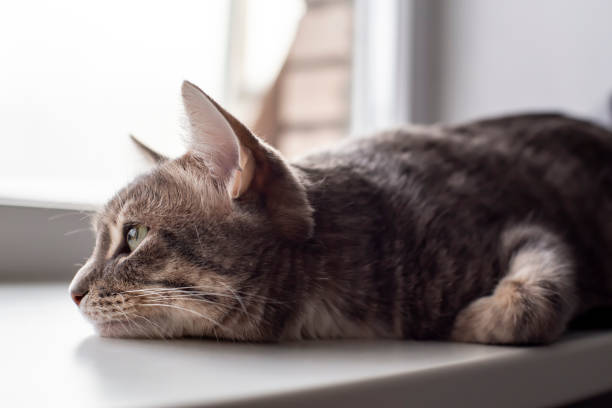Heart disease in cats is on the rise, with cardiomyopathy accounting for one-third of all heart conditions affecting cats. Heart diseases can be acquired or congenital. Congenital heart defects occur due to increased inbreeding of cats. However, there are always measures that can be taken to prevent acquired heart diseases and increase your cat’s quality of life.
Certain breeds are predisposed to the condition, such as Maine coons, Persian, Ragdolls and some American short-hairs, typically in middle-aged or senior cats.
There are three heart conditions that are most commonly seen in felines,
-
Hypertrophic cardiomyopathy (HCM) - a disease that affects the left ventricle of the heart, thickening it to the point where it impairs the pumping ability of the heart.
-
Restrictive cardiomyopathy (RCM) - a disease that is characterised by the buildup of scar tissue on the inner lining of the heart reducing the pumping efficiency of the heart.
-
Dilated cardiomyopathy (DCM) - a disease that develops when the muscular walls of the heart become too thin, and the heart enlarges, resulting in weak pumping ability of the heart.
There are certain underlying causes such as thyroid diseases, high blood pressure, tumors, heartworm disease and anemia which can lead to feline congestive heart failure. Many cats do not show any clinical signs of heart disease until the last stages.
The most common symptoms seen are troubled breathing and difficulty walking, particularly weakness or paralysis of the hindlegs. The respiratory distress is due to fluid buildup in the lungs.
Here are a few measures to help keep your cat’s heart healthy
-
Regular vet visits - Schedule regular checkups, increasing the frequency as your cat gets older. Early diagnosis and treatment will keep your cat’s heart healthy longer.
-
Diet - Amino acid deficiency can lead to heart disease. Ensure that your cat gets a nutritious, well-balanced diet.
-
Supplements - Since cats are very particular about their cat food , they sometimes do not consume adequate amounts of all nutrients in their diet. In such situations, cat supplements can be an essential to
prevent heart disease in cats and keep their cardiovascular system healthy.
-
Exercise - Regular exercise is important and often gets overlooked with cats. Cats tend to sleep more and are not very social, so schedule time to play with your cat to ensure they get sufficient exercise. Additionally, monitor your cat’s weight as obese cats are more susceptible to heart disease.
-
Deworming - Regular deworming in pets can prevent conditions like heartworm disease which can lead to feline congestive heart failure. Regular deworming boosts their immunity thus increasing their quality of life.
-
Reduce stress & anxiety - Keep their lifestyle as stress-free as possible. Ensure they have a quiet relaxing space away from noise, children and other pets. Any changes in routine needs to be gradual to avoid stress and keep them comfortable.
-
Signs & symptoms: Observe your cat for less obvious signs like vomiting, lethargy, depression, poor circulation, swollen belly, loss of appetite, change in weight and restlessness. If you find any of these symptoms, speak to your vet to get your cat’s heart checked.
Don’t wait for signs to appear, start the journey of preventing heart diseases in your cat as early as possible.


